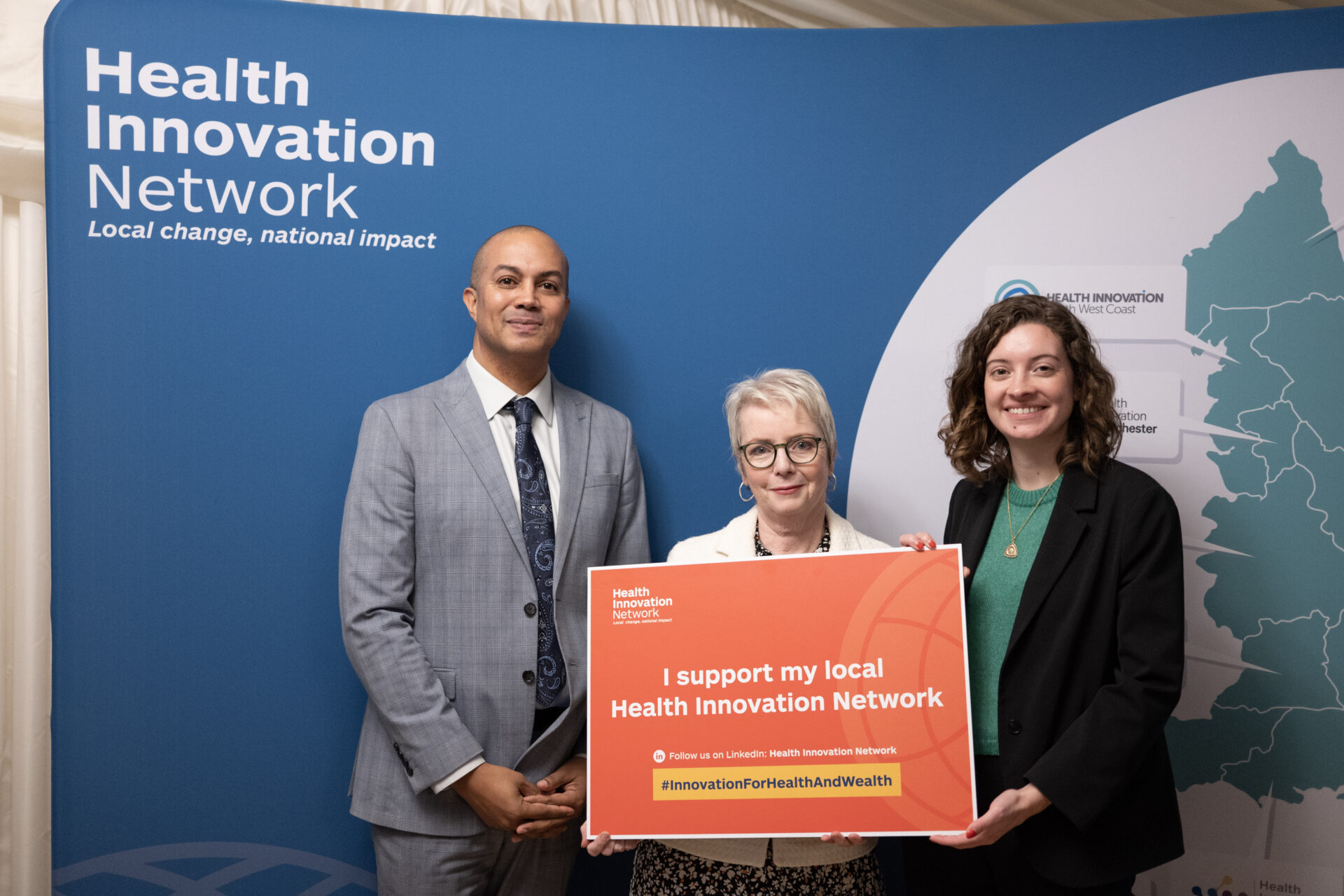Small Business Research Initiative (SBRI) accelerates innovative technologies in the NHS and the wider health and social care system, tackling unmet health and care needs. As a Network, we support the programme through our membership of the Accelerated Access Collaborative (AAC), which brings together industry, government, regulators, patients and the NHS to help speed up the access and uptake of innovation.
Twenty-two innovations were selected as part of the Delivering a Net Zero NHS: Clinical Innovation Competition, based on their ability to support the NHS’ ambition to achieve net zero carbon emissions by 2045. These include projects to explore decontamination and recycling of single-use plastics, trialling the use of at-home finger prick blood tests for prostate cancer patients and supporting GPs to implement carbon reduction plans.
Of the competition winners, over half have been supported by local health innovation networks.
Pete Waddingham, Health Innovation Network Net Zero Lead, said: “As a Network, we’re supporting the NHS with its target of reaching Net Zero by 2045 by championing sustainable innovation and offering practical, tailored support in this area to healthcare innovators.
“Support for the 14 winning innovations, across seven of our networks, has included: helping to develop a carbon impact analysis, value propositions and evaluation strategies; introductions to key stakeholders across the NHS; project management; and facilitation of focus groups.”
Find out more about the 14 network supported innovations:
- Revolution-Zero Group Ltd: ZERO-DECON: Net Zero healthcare textile processing
Supported by Health Innovation West of England, the project was awarded £583,323 and aims to remove the current requirement for heating water for washing medical textiles including surgical textiles, garments and linen within the UK. This currently contributes to more than 250,000 tonnes CO2e emissions a year, globally.
Supported by UCLPartners, Path Active was awarded £599,229 and is a smart insole that monitors foot temperature and pressure to predict and prevent diabetic foot ulcers. The innovation aims to reduce carbon footprint through reduction in travel and in the use of disposables.
- Definition Health Ltd: Carbon Reduction through a personalised surgical journey-Phase 2
Supported by Health Innovation Kent, Surrey, Sussex, the study was awarded £599,164 and aims to reduce carbon emissions in a pilot of orthopaedic surgery at University Hospitals Sussex by using digital technology from first referral to discharge.
- Blum Health: DiagOp
Supported by Health Innovation West Midlands, the digital platform will map laboratory demand to help reduce unnecessary diagnostic tests. It aims to discover if the reduction of unwarranted demand could lead to improved service quality and reduce pressures on diagnostic services, without buying cheaper products, whilst evidencing carbon reduction.
- Somerset NHS Foundation Trust: PiP (Pee-in-Pot)
Supported by Health Innovation South West, PiP is a sustainable and innovative urine collection vessel used to collect a mid-stream urine specimen that saves on direct and indirect costs and produces a significant carbon saving.
Supported by Health Innovation Yorkshire & Humber, the project aims to engage and equip busy health professionals in general practice to implement carbon reductions in clinical activity through “off-the-shelf” quality improvement projects available through a web-platform.
- Brighton and Sussex Medical School: Decontamination of airway devices
Supported by Health Innovation Kent, Surrey, Sussex, the project will test novel methods for decontamination enabling reuse of airway devices onsite so that they can be re-used safely whilst reducing the carbon cost significantly.
- REWIRE REHAB LTD: neurorehabilitation app
Supported by Health Innovation Yorkshire & Humber, Rewire is an app that delivers personalised neurorehabilitation, giving stroke survivors the capability to rehabilitate in the absence of a physiotherapist or occupational therapist. The app can lower carbon admissions by reducing hospital visits.
- TUNLEY ENVIRONMENTAL LIMITED: Pressure Ulcer Critical Pathway Aid
Supported by Health Innovation North West Coast, the project aims to develop an AI model that will act as a predictive tool to aid healthcare decisions for the management and prevention of pressure ulcers. The tool will use basic patient data to recommend an effective, low-carbon, cost-efficient clinical end-to-end pathway, while reporting metrics, providing tailored and efficient care.
Supported by Health Innovation West of England and Health Innovation Kent, Surrey, Sussex, the project was awarded £99,986 and will explore decontamination and recycling of single-use plastics from the NHS at a regional pilot site, and use of high-grade recycled polymers to manufacture lab/medical-grade consumables in a circular economy approach.
- Redmoor Health Ltd: Primary Care Route to Net Zero
Supported by Health Innovation North West Coast, The Net Zero Journey Planner is a sector-specific change management tool to support GP surgeries by educating, and supporting them to measure, plan and implement their NHS Net Zero decarbonisation roadmap.
- Sussex Community NHS Foundation Trust: Delivering a low carbon neurorehabilitation pathway
Supported by Health Innovation Kent, Surrey, Sussex, the development of a virtual neurorehabilitation care model will help maximise the wider sustainability benefits of virtual consultations.
- University of Brighton: Environmental sustainability recipe book to reduce the carbon footprint of intensive care
Supported by Health Innovation Kent, Surrey, Sussex, the project aims to develop, evaluate and disseminate an Intensive Care Environmental Sustainability Recipe Book to reduce the carbon footprint of intensive care units in the UK.
- Royal Devon University Healthcare NHS Foundation Trust: Transforming Prostate Cancer Monitoring services to a low-carbon future
Supported by Health Innovation South West, the project is trialling the use of at-home finger prick blood tests for prostate cancer patients, creating a more sustainable and convenient experience.

Join us on 11 and 12 June in Manchester to find out how the Health Innovation Network is improving health and driving wealth through health innovation. This year we’ll be joined on our stand by 18 Network-supported innovators, showcasing innovations which are helping to deliver the Government’s three shifts for the NHS and solve some [...]

The Health Innovation Network is delighted to announce the launch of Innovation Insights, a brand-new webinar series designed to highlight the latest in health innovation, offering attendees valuable insights into the adoption and spread of innovation within the health and care landscape. Each interactive webinar will feature: Expert presentations: Delivered by thought leaders across [...]

The Health Innovation Network, at an event sponsored by Sarah Coombes MP, brought together parliamentarians including Health Minister Karin Smyth MP and Chair of the Science, Innovation and Technology Committee, Chi Onwurah MP to meet with six innovators supported by health innovation networks across the country and their NHS partners. At the Meet the Innovators: [...]





